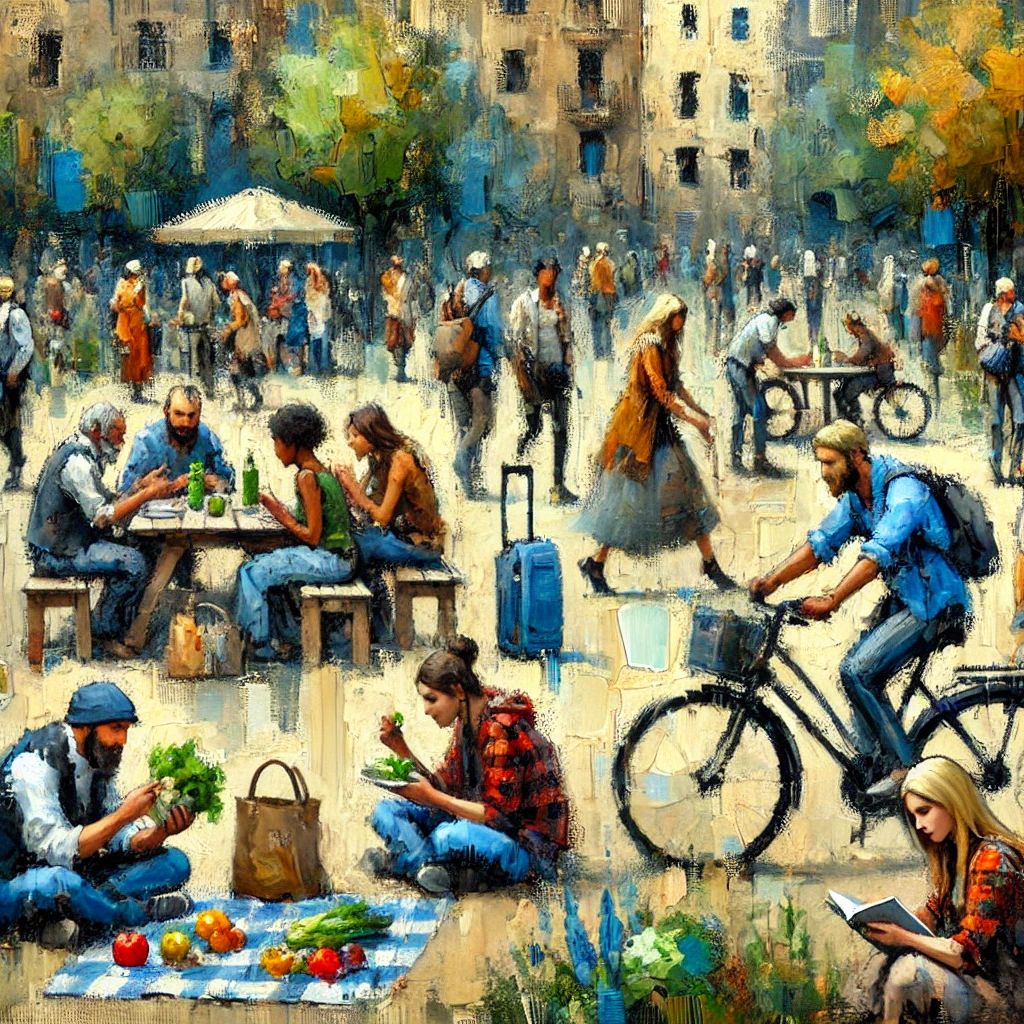Category: Philosophy & Theory
-

The Dialectic of Courage
Courage exists on a spectrum and requires balance, as both underdevelopment and overdevelopment can lead to issues. It is a crucial emotional capacity that influences actions in response to fear. The challenge lies in deciding when to act courageously or heed fear, depending on individual responsibilities and the potential consequences of those choices.
-

Analysis vs Observation
This post contrasts sensation analysis with simple observation. Analysis categorizes and deducts, often distancing us from direct experience. In contrast, observation focuses on present sensations without interpretation, enhancing immediacy and allowing feelings to exist without justification. This shift can reduce reactivity and clarify experiential understanding beyond academic reasoning.
-

Anxiety as a Signal of Misalignment
Existential anxiety signals misalignment between our lives and core values. Rather than aiming to eliminate it, we should interpret anxiety as a message indicating areas where change is needed. By acknowledging it, we can address disconnection and seek environments that align with our true selves, allowing for fulfillment and integrity.
-

“Control Yourself!” Who is being asked to control who?
The post discusses the complex relationship between community, cultural expectations, and personal control over emotions and behavior. It highlights how control is often an illusion, as individuals struggle to manage their responses to external stimuli. It also explores spiritual insights on identity and the paradox of trying to control suffering, advocating for acceptance instead.
-

Choice and quality of life | What choice, if removed, would most positively impact your well being?
The United States encompasses various sub-cultures influenced by a dominant meta-culture emphasizing freedom and choice. This dual nature of choice can lead to both empowerment and oppression. Reflecting on which choices could be beneficially removed may enhance well-being, drawing insights from cultures that prioritize routine and communal practices.
-

Concrete vs Abstract responsibility for teenagers
Many teenagers struggle with responsibility due to the shift from concrete to abstract tasks, leading to feelings of irrelevance. This disconnect affects their self-esteem and motivation. Emphasizing concrete responsibilities and minimizing shame in abstract tasks may enhance their ability to engage and develop a sense of accountability, fostering emotional growth and future success.
-
The Relativity of Oppression
Oppression exists, and much like other abstractions, oppression is often cognitively enmeshed with content or with something more concrete. There is often a more tangible entity that gets labeled as ‘oppressive’ or as the ‘oppressor’… through time we often allow for more tangible entities (such as a person, lifestyle, belief system etc) to be labeled…
-
When Attachment Theory and Existentialism Compete
In this post I will be investigating the relationships between one’s core sense of purpose in life (existentialism) and contrasting that with the most basic needs associated with human bonding (attachment theory). The question that I am playing around with is: “Are there some people who have a life purpose which is incongruent with maintaining…
-
Choice is Oppression
Wow that is a provocative way to start! of course Choice is also liberation and a billion of other things, but in the post I want to shine some light on how individualism has created a blind infatuation with choice – and how ‘choice’ is actually the very source of our oppression. perhaps the single…
-
Democratically Denying Education – the internal flaw of democracy
Democracy needs education to function properly; without an informed electorate it would be unclear as to what any given person’s vote was based on… this turns voting into a game of chance where we the people are choosing one person or policy based on either no information, false information, or fallacious information. Yet the freedoms…
-
Scientism
Scientism is essentially the result of dogmatism for the scientific method, which leads to gross overgeneralization about the importance or ability of the scientific method. Most speakers on the subject relay their concern of the impact that scientism has had on the field of human psychology and spirituality.
-
Respecting Elders in a Society of Rugged Individualism
My intention is to stir up a conversation as to a possible answer to why there seems to be a decreasing degree of ‘respecting your elders’ in the United Stated and other individual focused cultures (as opposed to collectivist cultures).
-
Freedom from and Freedom to
Freedom is the very thing which inhibits freedom
-
The difference between good intentions and good actions = understanding, humility, and empathy
There are many saying about how many “evil actions” have been the result of good intentions. So how are we to know if our actions are good? Are there actions which are indisputably wrong and indisputably right? Instead of going into a heady philosophical investigation as to why good and bad are infinitely one, inseparable,…
-
Face your Suffering on your way towards Freedom and Balance | The Effects of Resistance
There is a widely held belief (especially by males) that it is a person’s duty in life to “just get over it” … which in my experience entails using a great deal of energy to deny and repress what is.
-
Adlerian psychotherapy – an overview
In this post I will be giving an overview of Adlerian psychotherapy, which was one of the first theories in the field.


